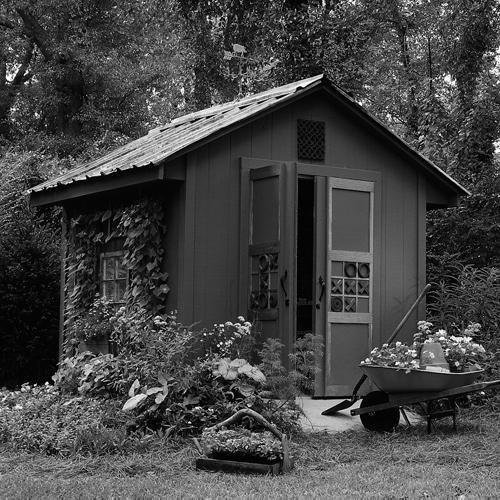Ever heard of ‘Sticky Shed Syndrome?’ Stop sniggering, it’s not what happens when your 1970’s Dad spent too long at the bottom of the garden with his specialist magazines.
‘Sticky Shed Syndrome’ is when you’ve left magnetic tapes in a box somewhere, they get a little damp (it doesn’t take much) then you try to play them! All you get is a a very sluggish tape trying to rewind and a tearing sound as the tape rips itself to shreds. Brilliant.
It’s all to do with the glue holding the iron oxide coating onto the plastic tape, deteriorating and breaking down over time due to absorbing moisture. The iron oxide is obviously the part of the tape that holds in the information, the crucial bit.
Why should you be worried about Sticky Tape Syndrome? Are you a professional film maker or content creator?
Where are those old master tapes and rushes you might someday want to use again? Boxes of old magnetic master tapes and rushes you shoved onto a shelf, into a cupboard or actually into the shed at the bottom of your garden?
What type of tapes are we talking about? Any of them. VHS, U-Matic, Beta SP or Digi-Beta could apparently all be vulnerable. Obviously the older the tapes are the more vulnerable they are.
So to the baking. The solution to Sticky Tape Syndrome is to bake the tape in an oven, on a very low heat, for a long time (just like French Meringues) and get the iron oxide to stick back on the tape.
The one problem is you can only do it once. So you better get what you need from it pretty quickly before the glue gives up for ever and oxide all falls off taking your pretty pictures with it.
There is obviously a more pressing issue for anyone who has a large archive of critical material held on magnetic tapes and even 35mm celluloid. Even after baking it is becoming increasingly expensive to view or process those formats and will only get more so as the years pass.
Where there were once thousands of machines, in hundreds of buildings across the country, coddled and caressed by highly trained engineers, there are now only a handful of companies who can handle these older formats to a professional standard. For this reason, they are charging more for their services as the price of spares rises and engineer’s ranks are becoming depleted.
More and more we are seeing clients wanting us to protect their older assets into the coming years or actually use them within their current business. For anyone working with brands who understand their ‘brand heritage’, this is proving acute.
This was recently highlighted when we were asked to look at a client’s archive to assess what they had, what they might discard and more importantly what they had to protect. Getting clever with Excel revealed some really worrying facts.
In nearly every case the client only had one single copy of their masters, on a single magnetic tape or on a 35mm print.
· Often the only 35mm print had no sound with them and the archive is so convoluted it is impossible to see where the sound reels might be.
· In many cases the only copy of completed work from the 80’ & 90’s was held on U-Matic tapes as the master print had obviously been lost.
· A client paying to store 50 or 60 copies of the same thing on VHS as no one could be bothered to amalgamate or thin the archive.
· Some of the clients most historically important visual work was close to being lost to unusable formats.
It’s not cost effective to digitize everything you have, to move every last frame to a more future proofed form of digital storage but surely you should do something about your masters?
The digitization of older assets also allows for a level of archive security that was previously uneconomic. Post houses used to charge a fortune to run off a sub-master or cloned master, but now making two copies of everything is easy, so co-locating your archive is simple.
Always remember that holding your data in two places, and on two formats like drive and LTO, is the simplest way to protect it from loss, corruption or theft.
You never know when those old masters might just be worth something; ask the BBC about the entire series of Old Grey Whistle Test or Ready Steady Go they just scrubbed.
Is it time that you addressed the issue of redundancy of your archive before you have to buy an industrial oven and try not to burn all the cakes?
